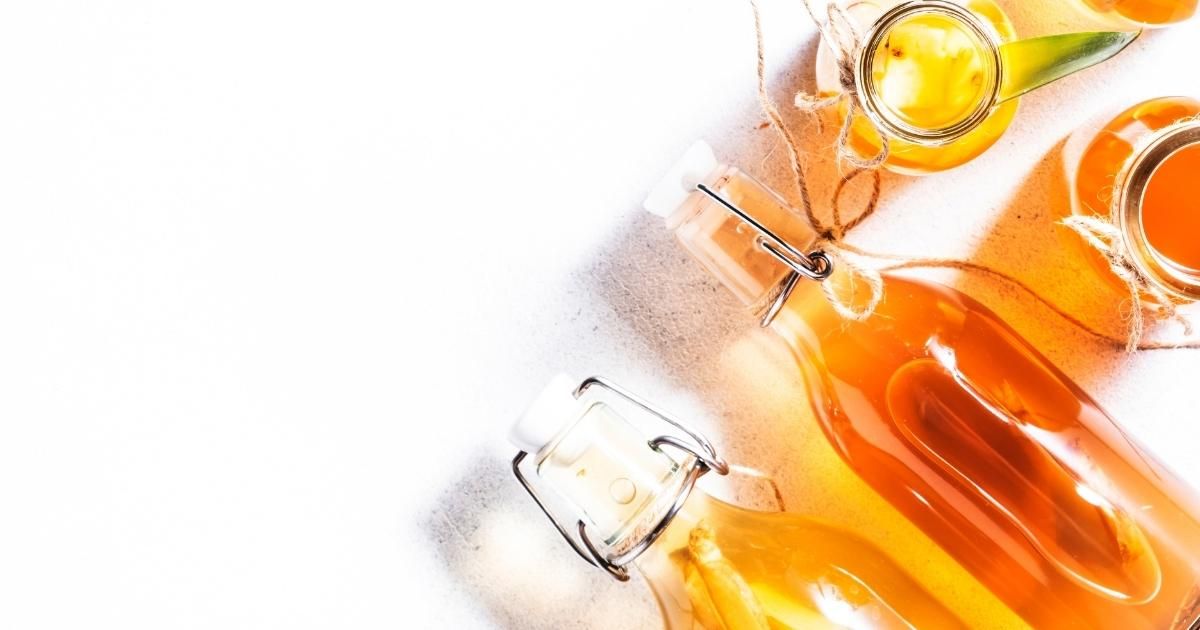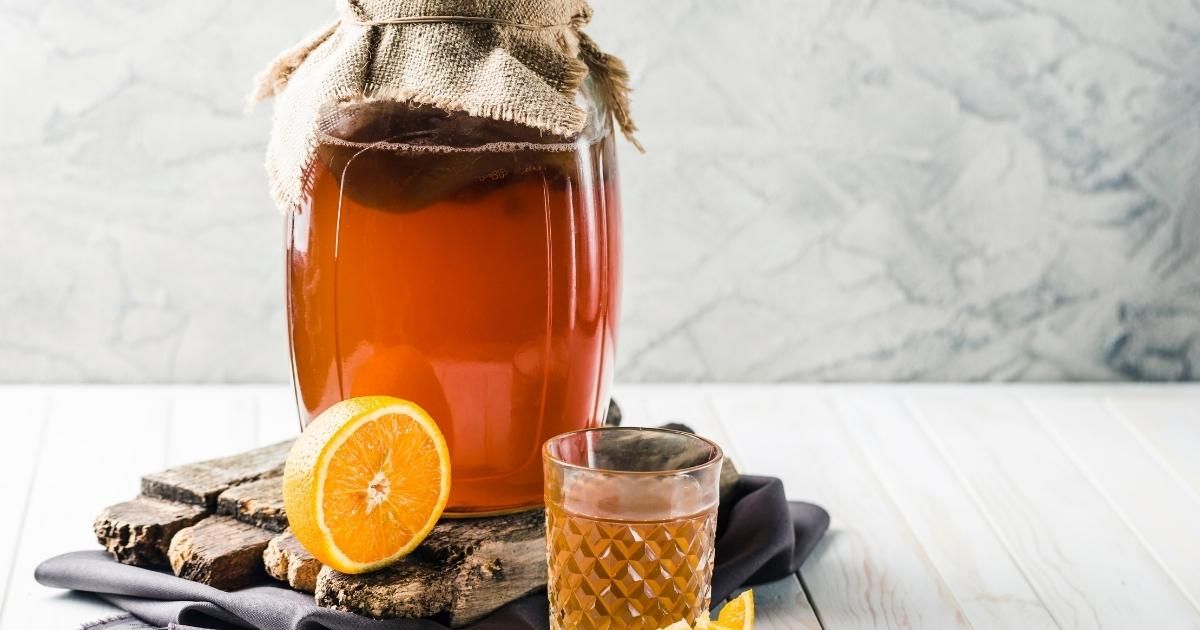What Is Kombucha & How To Use It?
You've heard of superfoods; Kombucha is one of the super drinks. Healthy and delicious, this fermented beverage has it all. Here's what you need to know about kombucha.
Kombucha is a nutritious and delicious fermented drink that’s been gaining popularity recently. The best part? You can make your own!
The question is, what is kombucha tea? Is it right for you? Here’s what you need to know about this exciting drink. You’ll love kombucha, guaranteed.
What is Kombucha?
Kombucha is an ancient Asian beverage, most likely created first on the shores of the Yellow Sea in China thousands of years ago. This is no ordinary drink, though, but a living fermented beverage with dozens of health-related claims. Kombucha might just be amongst the healthiest drinks ever.
Eventually, kombucha found its way from China to Europe and the rest of the world, and it’s now available commercially. Making kombucha at home is also a popular hobby.
Kombucha is fermented tea, specifically green or black tea, sweetened and transformed by a symbiotic culture of bacteria and yeast, or SCOBY. Yeast and bacteria work together to turn the fermented tea into a nutritious and quite tasty drink.
Kombucha tea is made up of water, fructose, glucose, gluconic acid, acetic acid, tons of enzymes, amino acids, and several organic acids, vitamins, and minerals. It’s incredible what SCOBY can do with simple tea and sugar.
The question here is, is kombucha tea healthy? How to make it at home? Is there any risk related to consuming kombucha? Here’s all you need to know. Kombucha might just be the drink you were looking for, whether for its alleged benefits or its refreshing flavor.
How to Make Kombucha?
To make kombucha, you need just a few ingredients. The rest is up to a happy family of microorganisms. This is what you need.
Water: Use water that is free of chlorine and fluoride. Bottled water is a great alternative.
Sugar: Organic cane sugar is your best bet for homemade kombucha. Sadly, you can’t use sugar substitutes since it’s the sugar that will feed your cultured yeast.
Tea: Choose your favorite loose-leaf green tea or black tea. A few tablespoons of tea bags for every quart of water is enough. Of course, you can make your kombucha stronger or milder.
Distilled White Vinegar: You always need vinegar or starter tea to ensure your tea has the right acidity for the SCOBY to thrive. Acidity also protects your kombucha from foreign bacteria.
Active SCOBY: Finally, you’ll need your cultured bacteria and yeast, or SCOBY. These microorganisms will turn the acidic sweet tea into kombucha.
Although making SCOBY from scratch is possible, it's a risky business — you never know what type of bacteria you’re growing. If this is your first time making kombucha, purchase an active SCOBY instead. That’s the only way to make sure your kombucha is safe to drink.
Once you have your ingredients in hand, dissolve the sugar in the water and steep the tea. Once infused, add the vinegar and SCOBY and store the mixture in a cool, dark place for 7-30 days. Taste periodically. Make sure you keep the SCOBY for your next batch!
What Are The Benefits of Kombucha?
Kombucha has been a health supplement for millennia. And although there are dozens of health benefits attributed to tangy tea, science has not proven all of them. Nonetheless, there are numerous evidence-based health benefits of kombucha tea.
- Kombucha is loaded with probiotics. Probiotics are healthy bacteria that can improve digestive health and help your intestines absorb nutrients better. All fermented foods have probiotics, and they're all excellent for your diet.
- Kombucha tea has antioxidants. Tea alone is healthy enough, and since kombucha is based on tea, it shares its benefits. Antioxidants in tea can keep free radicals at bay, which are responsible for oxidative stress, premature aging, and even some types of cancer.
- Kombucha tea might reduce cholesterol. There’s a good chance consuming kombucha regularly can reduce the risk of heart disease by lowering the "bad" LDL cholesterol while boosting the good kind. For healthier results, make your kombucha with green tea.
- Kombucha might help manage diabetes. Studies suggest consuming kombucha might help slow carb digestion, reduce blood sugar levels and prevent spikes. This is particularly useful for people with type 2 diabetes and others showing insulin resistance.
- Kombucha might prevent some types of cancer. More research is needed. The polyphenols and antioxidants in kombucha tea might have anti-cancer effects. Tea drinkers appear to be less susceptible to some types of cancer, and that goes for kombucha as well—it might suppress cancer cell growth.
What Are the Ways to Use Kombucha?
The easiest way to enjoy kombucha’s flavor and health benefits is by drinking it. Chilled or over ice, kombucha is tangy and tastes like tea, and sometimes it’s fizzy too!
There are other creative ways of using kombucha. It’s a lovely ingredient in salad dressings, as it’s a good substitute for mild acidic ingredients like citrus juice. Combine kombucha with olive oil and your favorite herbs and spices, and drizzle away.
If your kombucha is already too sour, it has accumulated too much vinegar. This makes it ideal for washing vegetables and eliminating pesticide residues. The tart kombucha can also become an all-natural household cleaner, and it will even give life to plants! Just remember, this is an acidic ingredient, so a little goes a long way.
Finally, give your hair a kombucha rinse to eliminate grease and pollution. The acid in the fermented tea can restore a lovely glow to your hair.
Other Fermented Foods to Add to Your Diet
If you think kombucha is healthy, which it is, you might want to add a few other fermented foods to your diet. Many foods and drinks benefit from microorganisms, and they’re all delicious.
- Sauerkraut and Kimchi: Both types of fermented cabbage are packed with probiotics and nutrients. They’re compatible with many types of meals as well. Sauerkraut is mild and tangy, while kimchi is an excellent way of spicing things up.
- Miso: Miso is a soybean-based paste used in many Japanese recipes, and it’s fermented as well. This is an authentic probiotic and nutrient cocktail, and there are many types of miso paste, all with a unique flavor.
- Tempeh: This Indonesian delight is another fermented soybean food, and it’s one of the foods with the most active microorganisms, all good for your digestive health. Let’s embrace fermented foods!




























